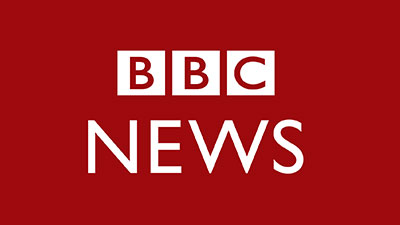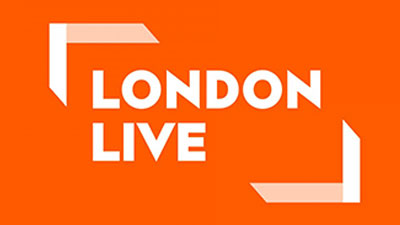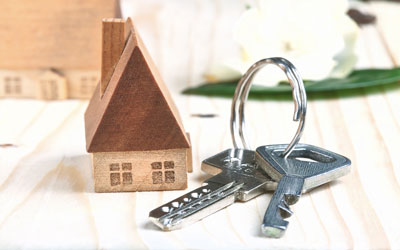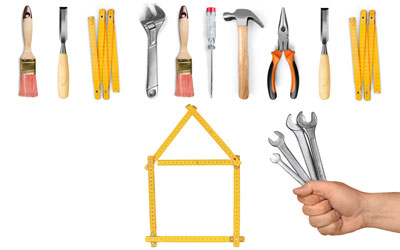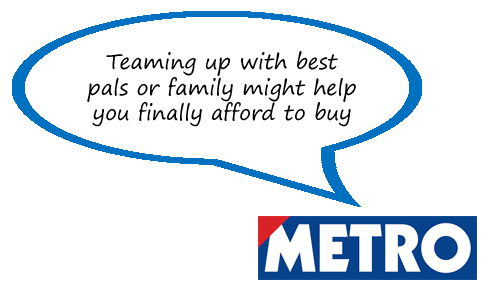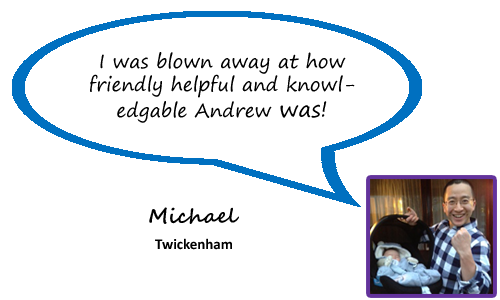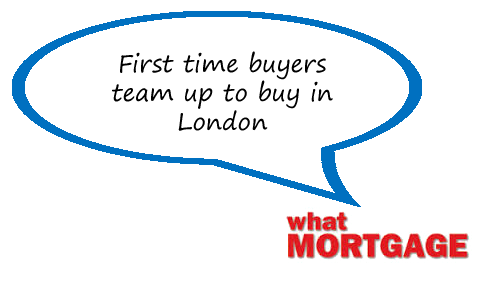How does it work?
How does it work when 'Buying a Home'?
Share a Mortgage's unique process allows you to pool your resources with other people to buy and jointly own a property of your choosing. You can share a mortgage with up to 3 other Mortgage Buddies depending on the number of bedrooms in your property. Your Mortgage Buddies can be a partner, friends, family members, work colleagues or other likeminded people you meet through Share a Mortgage.
You live in and share the property for the initial term of your mortgage; normally 2 years. After this you can stay living in the property, sell your share of the property to someone else or the whole property can be sold. You can even leave during the initial mortgage term if you want to.
You choose how the property is shared and document this, right from the word go, in your Shared Ownership Protection. The Shared Ownership Protection is a legal document that is prepared for you and your Mortgage Buddies. It includes how you share the ownership of the property, how the mortgage repayments and bills are split, any house rules you have mutually decided and, most importantly, how to exit when you want to.
You may benefit from any increase in the value of the property although such an increase is not guaranteed. You and your Mortgage Buddies similarly must share responsibility for any decrease in the value of the property occurring should any of you leave the arrangement, in proportion to your respective share of the property.
Your journey starts by joining Share a Mortgage, completing your profile and beginning your search for a first Mortgage Buddy.
How does it work when 'Buying to Let'?
Share a Mortgage's unique process allows you to pool your resources with other investors to buy and jointly own a property of your choosing. You can share a mortgage with up to 3 other Mortgage Buddies. Your Mortgage Buddies can be a partner, friends, family members, work colleagues, or other likeminded investors you meet through Share a Mortgage.
You'll share all income and costs related to the property for the initial term of your mortgage, normally 2 years. After this you can continue the arrangement, sell your share of the property to another investor or the whole property can be sold.
You choose how the property is let and document this, right from the word go, in your Shared Ownership Protection. The Shared Ownership Protection is a legal document that is prepared for you and your Mortgage Buddies. It includes how you share the ownership of the property, how the mortgage repayments and bills are split, any house rules you have decided including how you let and whom you let to and, most importantly, how to exit when you want to.
You may benefit from any increase in the value of the property although such an increase is not guaranteed. You and your Mortgage Buddies similarly must share responsibility for any decrease in the value of the property occurring should any of you leave the arrangement, in proportion to your respective share of the property.
Your journey starts by joining Share a Mortgage, completing your profile and beginning your search for a first Mortgage Buddy.
Can anyone share a mortgage?
Yes they can. You must, however, be able to afford the mortgage and pass the mortgage lending criteria.
Can I buy with anyone I like?
Yes you can. You simply need to have enough money between you to fund the deposit, the ability to get a mortgage and to afford your share of the mortgage repayments and household bills.
How many people can I buy with?
At most, 4, although some mortgage lenders only allow 2. If you have 4 people applying for a mortgage, most lenders will only look at the 2 highest salary earners to calculate the mortgage they will offer. The benefit of having more people is that the mortgage repayment and household bills are shared more widely making the living costs vastly more affordable.
Here's an example of how this works:
| Name |
Annual Salary |
| John |
£32,000 |
| Andrew |
£35,000 |
| Patrick |
£18,000 |
| Natasha |
£16,500 |
In the above example, the mortgage lender would normally only use Andrew's and John's salaries to calculate how much they'll potentially lend.
What is a deposit?
A deposit is a sum of money used as part payment for a property. A mortgage normally makes up the balance. You can buy a property with a deposit as low as 5% of the purchase price, however, the greater the deposit you can muster, the more favourable will be the mortgage interest rate charged by your lender.
How much deposit do I need when 'Buying a Home'?
Any sum of money will help. The goal is to find enough people such that, when you pool all your resources, you can afford to buy a property then keep up with mortgage repayments and household bills.
You should aim to get a deposit of at least 10% of the purchase price of a property between you and your Mortgage Buddies. If, however, you can increase this to 20% for example, you will benefit from lower mortgage interest rates and easier mortgage approvals.
How much deposit do I need when 'Buying to Let'?
Most mortgage lenders will require you and your Mortgage Buddies to have secured 25% of the purchase price collectively. If, however, you can increase this to 35% for example, you will benefit from lower mortgage interest rates and easier mortgage approvals.
Can I buy with no deposit?
Yes you can, as long as the other people you are buying with have enough between them to cover the sum. You would join the Mortgage Share without paying the deposit, but would contribute towards the mortgage repayments and bills, making the ongoing living costs more affordable for everyone.
Can I buy if I have children or a partner who isn't going to own the property with me?
Yes you can, as long as your Mortgage Buddies are happy with you having children or a partner living at the property.
How much do I get if the property increases in value?
Your return is based on how much you invested into the property through both the deposit and mortgage repayments. When you leave the property, your total investment share is divided by the total investment of all the Mortgage Buddies. This percentage is applied to the increase in property value which calculates your share of the increase.
Here's an example of how this works:
Jane and Michelle purchased a £200,000 house and sold it 2 years later for £210,000 - a £10,000 increase in value. Their mortgage repayments were equal but deposit contributions differed, resulting in different shares in the value increase, as shown below:
| Name |
Original
Deposit |
Mortgage
Repayments |
Total
Investment |
% Share
of
Increase |
£ Share
of
Increase |
| Jane |
£5,000 |
£5,000 |
£10,000 |
33.33%
(£10,000
/ £30,000) |
£3,333
(£10,000 *
33.33%) |
| Michelle |
£15,000 |
£5,000 |
£20,000 |
66.67%
(£20,000 /
£30,000) |
£6,667
(£10,000 *
66.67%) |
| Total |
£20,000 |
£10,000 |
£30,000 |
100% |
£10,000 |
How are mortgage repayments shared?
The mortgage repayments are normally shared equally between the owners, but you can agree for this to differ. If you, for example, earn a relatively small salary but have a large deposit ready, you could buddy up with someone with a smaller deposit but with a larger salary. The mortgage repayments can be shared in different proportions based on your respective earnings.
You must make sure, collectively, that the mortgage repayments are made in full each month otherwise your property may be repossessed (see 'What happens if someone stops paying their Mortgage Repayment and/or Bills?').
How are the household bills shared?
You choose how to share the household bills using a calculation based on the size of your bedroom or by the number of people sharing a bedroom/s that are linked to each other (partner and/or children).
Method 1 - The size of the your bedroom
This calculation is used where bedroom sizes are different. You can calculate your share of bills based on the size of the bedroom you occupy as a percentage of the total of all the bedroom sizes.
Here's an example of how this works:
| Name |
Size of Bedroom |
Share of Household Bills |
| Jane |
16.71 m |
47% |
| Michelle |
18.81 m |
53% |
| Total |
36.52 m |
100% |
Jane and Michelle purchased a house together and the household bills totalled £700. Jane pays 47% = £329 and Michelle pays 53% = £671.
Method 2 - The number of people living with one of the owners
This calculation is used where there are children or Non-Owner Residents (NOR) linked to one of the owners of the property. It could, for example, be your partner or your child. They are allowed to live at the property and neither own any share nor pay the mortgage repayments. You can calculate each of your shares of household bills based on the number of people linked to each owner.
Here's an example of how this works:
| Name |
No. of linked people (Inc Owner) |
Share of Household Bills |
| Jane |
3 |
75% |
| Michelle |
1 |
25% |
| Total |
4 |
100% |
Jane and Michelle purchased a house together and the household bills totalled £700. Jane pays 75% = £525 and Michelle pays 25% = £175.
Finding a Mortgage Buddy
How do I choose a Mortgage Buddy?
Choosing a Mortgage Buddy is down to your personal choice: you should think about where you want to live, how much deposit you need to buy a property and what sort of people you would like to share with. Read more on choosing your Mortgage Buddy here.
When do I start looking for properties to buy?
Now – start looking for properties you like and list them in your profile for members to see. This is a great way to get to talk to other members and see if they like the location, style and price of the properties you are interested in.
Should I give out my Experian Credit Report?
No. This is personal information and is for your purposes solely. Your credit report contains all of your personal records and could be used to commit fraud. If you are asked to supply your credit report you should report this to Share a Mortgage straight away.
How to leave the property
What happens if I want to leave the property but everyone else wants to stay?
Anyone in the property can sell at any time. If you want to sell, the following options are available:
1. The property is sold to a third party and everyone moves out.
2. The current owners buy your share of the property, you leave the arrangement and the remaining owners share the property under a new share arrangement.
3. A third party buys your share of the property, you leave the arrangement and the remaining owners share the property under a new share arrangement.
If there are any early mortgage repayment charges owing, you must pay them in full because you forced the early repayment.
Can I buy someone else's share of the property?
Yes you can, as long as it is agreed by all the owners of the property. The process is called a transfer of equity ('swap') and you need to get consent from your mortgage lender before proceeding.
Once you get your mortgage lender's consent to swap, you instruct an independent RICS surveyor (supplied by Share a Mortgage) to advise of the current market value; it may have gone up or down from when you purchased. Based on this valuation you will calculate how much to pay for the share of the property. Share a Mortgage's solicitors are specially trained to handle the legal work required for a swap.
Can someone else buy a share of the property?
Yes they can, as long as it is agreed by all the owners of the property. The process is called a transfer of equity ('swap') and you need to get consent from your mortgage lender before proceeding.
The benefits of having someone swap into the arrangement are that you share the mortgage repayment and household bills with more people making it more affordable. Someone can only swap into the arrangement, however, if there is a bedroom for them to swap into and if there are 3 people or less owning the property.
Once you get your mortgage lender's consent to swap, you instruct an independent RICS surveyor (supplied by Share a Mortgage) to advise of the current market value; it may have gone up or down from when you purchased. Based on this valuation you will calculate how much to pay for the share of the property. Share a Mortgage's solicitors are specially trained to handle the legal work required during a swap.
Can I move out and rent my room?
Yes you can, under a licence, as long as your mortgage lender confirms it is okay. You're still liable to pay your share of the mortgage repayments, household bills and fulfil your obligations in the Agreement; however your tenant can pay you rent for the use of your room and you can live somewhere else.
What happens if a Mortgage Buddy dies?
Their share of the property passes to their estate according to their will. A will is a legal document detailing how your affairs are to be handled and who will receive your property after all your liabilities have been settled.
The share is passed on to the estate when the property is sold or the deceased person's share is bought by someone else (See 'Can I buy someone else's share of the property?')
Do I need a will?
Yes and it should detail what happens to your share of the property if you die. Your solicitor can draft a will for you which can be as simple or as complicated as you want it to be.
Missed payments
What happens if someone stops paying their mortgage repayment and/or bills?
You can remove someone from the arrangement who does not pay their share of the mortgage repayments or bills. It is important that mortgage repayments are paid in full each month otherwise everyone in the mortgage share will get a negative note made on their credit file and the mortgage lender could repossess your property. If someone in the mortgage share stops paying their share, this should be covered by the other Mortgage Buddies.
These payments are repaid or deducted from the non-paying Mortgage Buddy's deposit on sale or transfer.
Failure to pay your share of the mortgage repayments could result in your Mortgage Buddies pushing you out of the arrangement and you will bear the costs of early mortgage repayments, solicitor and surveyor fees.
How do I remove someone who isn't paying their mortgage repayment and/or bills?
The Shared Ownership Protection has a mechanism where you can push a Mortgage Buddy from the mortgage share if they stop paying their mortgage repayments or bills for 3 consecutive months.
What happens if everyone stops paying their Mortgage Repayments?
You all are liable to pay the full mortgage repayments each month and if you stop paying, your property will be repossessed. If you think that you, or anyone in the mortgage share will not be able to pay the mortgage repayments you should immediately speak to your mortgage lender and seek their advice.
Your mortgage lender may be able to assist you with a mortgage holiday or a payment plan so that you can meet all or part of the mortgage repayments.
Living in the property
How do the mortgage repayment and household bills get paid?
You and your Mortgage Buddies set up a joint household account into which you each pay your monthly share of the mortgage repayments and household bills. This account is only used for paying the mortgage repayments and household bills.
How do I set up a household account?
You and your Mortgage Buddies will open an account at a bank or building society in England or Wales that allows for direct debits and bank transfers.
Can I develop/upgrade the property?
Yes you can, as long as all the Mortgage Buddies agree. You can agree to share the costs involved, in a way you all consider fair, and document this in the Shared Ownership Protection.
What are the house rules?
You will agree these with your Mortgage Buddies before you move in and they will detail such matters as how your possessions are used, parties, noise, smoking, pets and any other relevant subjects.
What happens if there is a disagreement?
The Shared Ownership Protection provides solutions to common disagreements, from house rules to leaving the property. As you and your Mortgage Buddies agreed on this document together at the beginning, it can be used to address any problems you may have.
If you are unable to agree then you can use the Alternative Dispute Resolution service provided by Share a Mortgage.
How does the Alternative Dispute Resolution service work?
Share a Mortgage provide an Alternative Dispute Resolution (ADR) service to provide swift rulings on disagreements between Mortgage Buddies. ADR will review the facts of any disagreement and make a judgment that all of the Mortgage Buddies must agree to.
Getting a mortgage
How do I get a mortgage?
You will be introduced to John Charcol, the UK's leading independent mortgage advisory service, who can provide you with mortgage products which are tailored to you and your Mortgage Buddies. Your mortgage adviser will explain the process in detail and make the application to the mortgage lender on your behalf.
How do mortgage lenders calculate how much they will lend me?
Mortgage lenders base the amount they will lend you on a number of different criteria including your salary, the number of applicants, credit history and affordability.
Your mortgage adviser will explain this to you in more detail.
How do I speak to my mortgage adviser?
How much does it cost?
How much is the membership fee for Share a Mortgage?
Do you charge for helping me find a Mortgage Buddy?
What costs will I have to pay to purchase a property?
You share the costs of purchasing the property with your Mortgage Buddies. The following is a non-exhaustive list of potential costs, including estimates of what you might be charged:
| Cost of Purchase |
Further Information |
Estimated Cost |
| RICS HomeBuyer Report or Building Survey |
A HomeBuyer Report or Building Survey will assess potential defects in the property. |
Based on the property price, starting from £360 incl. VAT. |
| Mortgage Valuation |
A mortgage valuation is required by your mortgage lender to assess the property's market value. It is not a defect survey. |
Based on the mortgage product – some are free but others can cost as much as £500 or more. This cost can sometimes be added to your mortgage and paid off over the life of the mortgage. |
| Mortgage Arrangement Fee |
Your mortgage lender may charge a fee for arranging the mortgage for you. |
Based on the mortgage product – some are free but others can cost as much as £2,000 or more. This cost can sometimes be added to your mortgage and paid off over the life of the mortgage. |
| Conveyancing Solicitor Fee |
A solicitor will handle the legal work relating to the purchase of the property. |
Based on the property price, starting from £529 incl. VAT. |
| Property Searches (Local Authority, Drainage, Environmental) |
Property searches give information to you and your solicitor about the property and the area around it. |
Based on the 4 most popular searches: Regulated Personal Local Authority, Regulated Drainage and Water Search, Envirosearch, no chancel indemnity; £239 incl. VAT. |
| Land Registration |
This is a charge levied by the Land Registry to register the property in the Mortgage Buddies' names and the charge is based on the property value. |
Based on the property value. See here for the table of fees. |
| Stamp Duty |
This is Stamp Duty Land Tax paid to HM Revenue & Customs and is based on a percentage of the property value. |
Based on a percentage of the property value. See here for the table of fees. |
| Land Registry Documents |
Title documents, bankruptcy search and title priority paid to the Land Registry. |
£3 OS1 Priority Search
£2 Bankruptcy
£6 Office Copy |
| Shared Ownership Protection |
Your legal document detailing the living/ownership arrangements between you and your Mortgage Buddies. |
£349 incl. VAT |
What costs will I have to pay to sell a property?
You share the costs of selling the property with your Mortgage Buddies. The following is a non-exhaustive list of potential costs, including estimates of what you might be charged:
| Cost of Purchase |
Further Information |
Estimated Cost |
| Estate Agents' fees |
Estate Agents are used to market a property to find a buyer. There are other ways to find a buyer for your property and this can be cheaper; however, going through an Estate Agent is the most popular route. |
Based on a percentage of the property value plus VAT – anywhere from 1.5% upwards. There are some online companies that charge a lower fee and allow you to conduct the viewings. |
| Leasehold Information Pack from freeholder (if leasehold property) |
When selling a leasehold property you may need to pay for leasehold information from your Freeholder/Managing Agent. |
The cost depends on the company; some charge nothing whereas others charge in excess of £300. A Local Authority's fees are normally around £120. |
| Conveyancing Solicitor Fee |
A solicitor will handle the legal work relating to the sale of the property. |
Based on the property price, starting from £529 incl. VAT. |
| Land Registry Documents |
Your solicitor buys office copy entries and other title information from the Land Registry. |
£6 per office copy
£20 per copy lease |
| Property Valuation Fee |
You may choose to get a RICS surveyor to value the property to get an independent market valuation for the property. |
Based on the property price starting from £280 Inc VAT. |
What costs will I have to pay to swap a property?
You, and whoever else is swapping, share the costs of swapping the property with your Mortgage Buddies. The following is a non-exhaustive list of potential costs including estimates, of what you might be charged:
| Cost of Swap |
Further Information |
Estimated Cost |
| Conveyancing Solicitor Fee |
A solicitor will handle the legal work relating to the sale of the property. |
Based on the property price starting from £529 incl. VAT. |
| Notice fee to the landlord (if the property is a leasehold) |
On completion of a swap on a leasehold property there may be a notice fee payable to the freeholder. |
The cost depends on the company; some charge nothing whereas others charge in excess of £180. |
| Land Registry Documents |
You may need to buy office copy entries and other title information from the Land Registry. |
£6 per office copy
£20 per copy lease |
| Land Registration |
This is a charge levied by the Land Registry to register the property in the Mortgage Buddies' names and the charge is based on the property value. |
Based on the property value. See here for the table of fees. |
| Property Valuation Fee |
You may choose to get a RICS surveyor to value the property to get an independent market valuation. |
Based on the property price starting from £280 incl. VAT. |
| Early Mortgage Repayment Charge |
If you swap during the Initial Mortgage Term, the mortgage lender may charge an EMRC – speak to your mortgage lender or check your mortgage product to find out if an EMRC applies. |
Based on the agreed amount within your mortgage offer; it is normally in the thousands. |
What are the household bills for 'Buying a Home'?
You share the household bills with your Mortgage Buddies. The following is a non-exhaustive list of the household bills:
| Services provided by |
Further Information |
| Service Provider |
|
| Council Tax |
This is paid to the local council. |
| Building/Contents Insurance |
This is paid to an insurer. |
| Mortgage Protection Insurance |
This is paid to an insurance provider or insurance broker. |
| Gas |
This is paid to the utility provider. |
| Electricity |
This is paid to the utility provider. |
| Water |
This is paid to the water authority. |
| Television Licence |
If the Mortgage Buddies use a TV in the Property they'll need to pay for a TV licence. |
| Telephone Line (Line cost only, not usage) |
To get broadband and to use a land line telephone, the property needs a telephone line. |
| Broadband |
This is paid to the broadband provider. |
| Sky / Virgin / Other TV package |
Mortgage Buddies can choose to get a TV package and split the cost. |
| Boiler Repair & Maintenance (Annual) |
This is paid to a qualified boiler engineer. |
| New Boiler (One Off) |
|
| New Washing Machine (One Off) |
|
| New Dryer (One Off) |
|
| New Dishwasher (One Off) |
|
| Replace lock on front door (One Off) |
|
For further details on the costs of living go to our Mortgage Affordability Calculator
Shared Ownership Protection
What is Shared Ownership Protection?
Shared Ownership Protection is a legally binding document, created by you and your Mortgage Buddies with a solicitor's help, which sets down the terms and conditions which you must all abide by to cover all the expenses and duties associated with buying and maintaining your property.
It additionally stipulates the procedure to follow should you or any of your Mortgage Buddies wish to exit the arrangement and what will happen in the event of someone defaulting on their agreed payments. It covers other matters specific to whether you are buying to live in a property or buying to let: please see below.
Shared Ownership Protection offers security for all would-be mortgage sharers, whether they are partners, friends or have met through Share A Mortgage.
How does it work for buying a home?
In addition to stating what each of you must contribute towards mortgage repayments and all other ongoing costs associated with the property, your Shared Ownership Protection will set down any house rules which you and your Mortgage Buddies have agreed.
These can include, for example, any rules about whether partners, children or pets can be brought into the household.
How does it work for buying to let?
In addition to stating what each of you must contribute towards mortgage payments and all ongoing living costs associated with the property, your Shared Ownership Protection will cover all matters associated with tenants and renting which you and your Mortgage Buddies have agreed.
Typically, but not exhaustively, this can include how tenants are found, the details of renting contracts including rates, who collects rents and how frequently these are collected.
What are the House Rules when buying a house?
The House Rules when buying a house are a number of principles, set out in the Shared Ownership Protection, which the Mortgage Buddies agree on to ensure that their shared ownership is as harmonious as it can be.
The rules, which include matters such as visitors, cleaning, pets and smoking, are fine-tuned then agreed according to the Mortgage Buddies' predilections and are based upon mutual respect.
When all the Mortgage Buddies have agreed the House Rules and signed the Shared Ownership Protection, the rules are legally binding.
What are the Letting Rules when buying to let?
The Letting Rules when buying to let are a number of principles, set out in the Shared Ownership Protection, which the Mortgage Buddies agree on to ensure that their shared ownership is as harmonious as it can be.
The rules, which include matters such as New Tenancy Agreements, managing the property and monitoring of tenancy, are fine-tuned then agreed according to the Mortgage Buddies' predilections and are based upon mutual respect.
When all the Mortgage Buddies have agreed the Letting Rules and signed the Shared Ownership Protection, the rules are legally binding.
What does it cost?
£349 incl. VAT. This cost is divided equally between all Mortgage Buddies.
Disputes
What happens if we can't agree on the terms of the Shared Ownership Protection?
Having to agree to legally binding terms with financial implications might initially seem scary, but we offer our expertise to help you make this as painless as possible.
The agreement, when finalised, offers your best legal protection should unwanted events happen and, in setting out procedures for as many possible outcomes as you can conceive of, gives peace of mind because you have already worked out your best strategies for different situations.
Share a Mortgage require you to invest in Shared Ownership Protection as a condition of trade with us, to give you as much chance of a positive outcome from sharing a mortgage as reasonably possible.
What happens if someone breaks the House Rules or Letting Rules?
Share a Mortgage has a Dispute Resolution Procedure to help smooth out any disagreements between Mortgage Buddies. We encourage people in the first instance to resolve any problems which arise between themselves.
To aid this, we have set out a Dispute Resolution Letter in the Shared Ownership Protection, in which Mortgage Buddies can set out their dispute formally and request a meeting with Mortgage Buddies involved to talk about any issues and attempt to solve them.
What happens if sharing Mortgage Buddies cannot resolve a dispute between themselves?
Share a Mortgage, as part of the Dispute Resolution Procedure, offers our Alternative Dispute Resolution Service (ADRS), in which an independent solicitor trained in mediation is brought in by request of a Mortgage Buddy to consider the dispute and to give a final binding judgment on it. It is activated by a Mortgage Buddy using the Resolution Request set out in the Shared Ownership Protection.
The Shared Ownership Protection requires Mortgage Buddies to use the ADRS where possible if they can't sort out a dispute between themselves and by signing it, Mortgage Buddies agree to be bound by the mediator's final judgment and that there is no right to appeal.
What does Share a Mortgage's Alternative Dispute Resolution Service (ADRS) consist of?
The ADRS involves Share a Mortgage appointing an independent solicitor, on request from Mortgage Buddies having a dispute, to mediate and provide resolution.
Mortgage Buddies have the option either to ask the mediator to provide a Written Judgment or provide Face to Face Mediation in a meeting with the disputing Mortgage Buddies.
What does it cost?
A Written Judgment costs £190 incl. VAT.
Face to Face Mediation costs £390 Inc VAT, which includes a 1 hour meeting and a subsequent Written Judgment.
If Face to Face Mediation requires longer than an hour, additional hours are charged at £200 per hour incl. VAT.
Who pays for it?
In signing the Shared Ownership Protection, Mortgage Buddies agree that, should they need to use the ADRS, the costs of the service must be shared equally between the disputing Mortgage Buddies.
What if I want to take another Mortgage Buddy to court because of a dispute?
Going to court can prove very costly, nonetheless the right of Mortgage Buddies to take this action because of a dispute with other Mortgage Buddies is completely unaffected by the Shared Ownership Protection.
